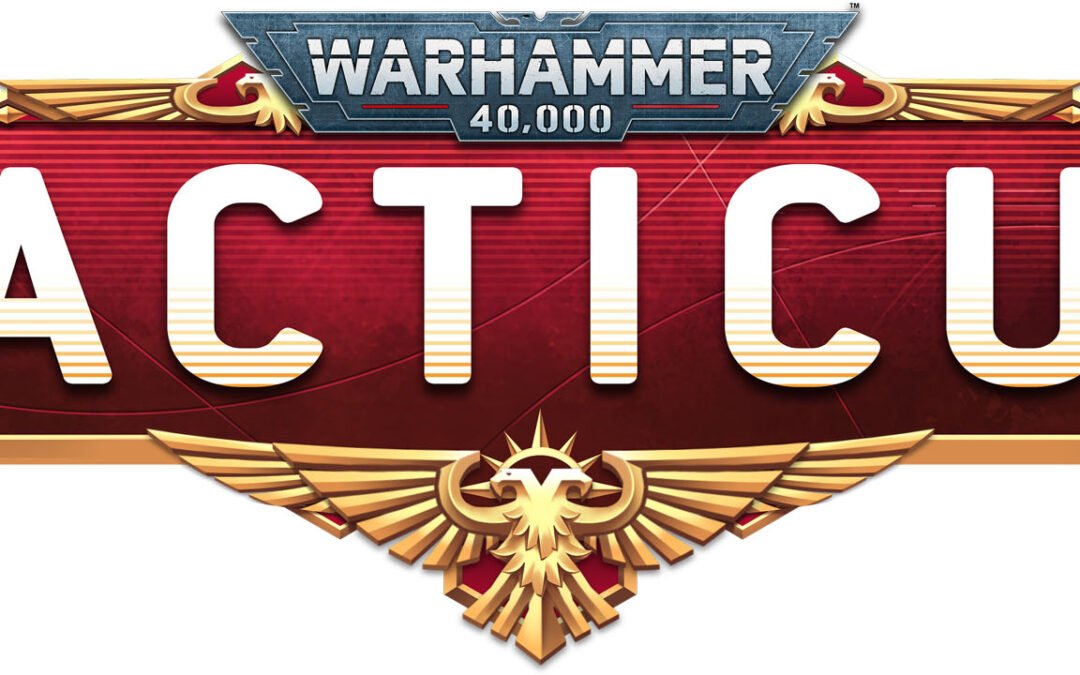We keep saying that lore and story are enormously important to us here on the Tacticus team, and that means the writing of those stories is too important to do in between other design jobs. We are very proud and excited to announce that we’ve hired the amazing Matt Forbeck to write our campaign. We feel fortunate to be able to bring you his experience and storytelling skills through our game. Please enjoy this Q&A, and if you’ve got any questions or comments for him, join us in the Tacticus Discord and we’ll pass them on.

Snowprint: You’re in the midst of a fantastic career writing and designing for pretty much every game company in the industry, but your first industry job was at Games Workshop. And this was pre-internet! How did that come to happen?
Matt Forbeck: It’s a long story — like probably a full chapter in my inevitable memoir — but to cut it a bit short…
After I graduated college, I wanted to travel to Europe, but I didn’t have any money, so I set up a student work visa for myself. For graduation, my dad bought me a one-way ticket to the UK. That September, I flew to London without knowing anyone in the entire hemisphere except a kid in Spain who’d gone to high school with me as an exchange student. Upon landing, I called up Games Workshop from a pay phone and set up an interview for a job as an editor, which they’d advertised in White Dwarf.
I showed up at the Games Workshop Design Studio in Nottingham in a suit and tie, which everyone in the studio got a good chuckle about. After a tour of the studio, they sent me away with an editing test and told me to bring it back on Monday. I arrived that day with everything I owned on my back and said, “You either have to give me a job today, or my dad’s best friend’s boss’s daughter — who I’ve never spoken with before — has offered me a couch to sleep on in Oxford for two weeks while I look for a bartending gig.”
Believe it or not, I got the job! I didn’t discover until years later that I’d been competing against two other people for the position.
I wound up having a wonderful time at the studio and made some of the best friends of my life, including Bill (William) King, who I wound up sharing a flat in the Meadows with. When it was over, they offered me a permanent job, but my girlfriend back home in Ann Arbor said we’d have to break up if I took it — and she was right. This was in the days before the internet, much less things like Zoom and FaceTime, and it would have been ridiculously hard.
So I gave my notice and went back to Ann Arbor. That girl’s now my wife of 29 years and the mother of our five children, so it worked out pretty damn well.
Epic 😀
You’ve been working with GW off and on ever since. What do you do to nail the GW “voice” in the stories and games — or is your natural voice just a natural fit?
Part of my training at Games Workshop was learning how to match my voice with theirs. During my first week, my boss — Simon Forrest — edited a one-page piece I’d written by marking it up in front of me. He crossed out the first line, left the second line alone, and then crossed out the third line. Then he methodically crossed out all the remaining paragraphs on the page, crumpled it all up, and threw it away.
I was dismayed. “Didn’t you like any of it?”
“Well that second sentence wasn’t all bad.”
I rewrote it something like six times before I finally got it to where he didn’t throw it out. And those lessons stuck.
What’s your starting point when you’re telling stories in a licensed world?
I like to immerse myself in the world. If it’s a game, I play it. If it’s a show, I watch it. If it’s a book, I read it.
The whole time, I try to figure out what it is about that thing that resonates with its fans. Once I discover that, it’s just a matter of translating that bit into whatever I’m supposed to be working on. I always become a fan myself in the process, which helps.
How do you deal with the expectations that fans of the world bring to the table, while still doing something fresh and interesting?
I try to ignore the expectations of fans. It’s not that I don’t know that they’re there, but the expectations that the people I’m working with —not to mention myself — are generally high enough that if I can hit those, the fans should be happy too.
Also, fans often ask for things they think they want out of something, but often what they really would like to see is something else. Something fresh and new that respects what’s gone before. It’s hard to ask for that kind of thing, but they love then they get it. I say this as a big fan myself.
Can you give us a little peek into your thinking so far for Tacticus?
I’m trying to tell solid stories that illuminate not only the 40K universe but give the game the right context to make the battles you fight in Tacticus feel important. It’s tricky, but that’s what writing for games is all about: giving players a reason to care about the things they do in the game. That’s what helps the gameplay continue to feel fresh no matter how long you keep playing.
If you were playing a Warhammer 40000 campaign right now, what would be your favorite faction?
They all are their own kind of fun. I’m kind of partial to Orks myself. They’re just so ridiculously over the top. Also, I was working in the studio when Bryan Ansell and Nigel Sitllman were creating Waaargh: Orks, the original Orks handbook, and Ioved watching that develop.
While we’re waiting to unveil your Tacticus stories, is there anything you’re doing (or a favorite thing you’ve done) that might give our community some insight into your style?
That’s a good question. I just ran a Kickstarter for a D&D sourcebook based on my Shotguns & Sorcery novels and stories. That’s about as good a place to start as any.


Recent Comments